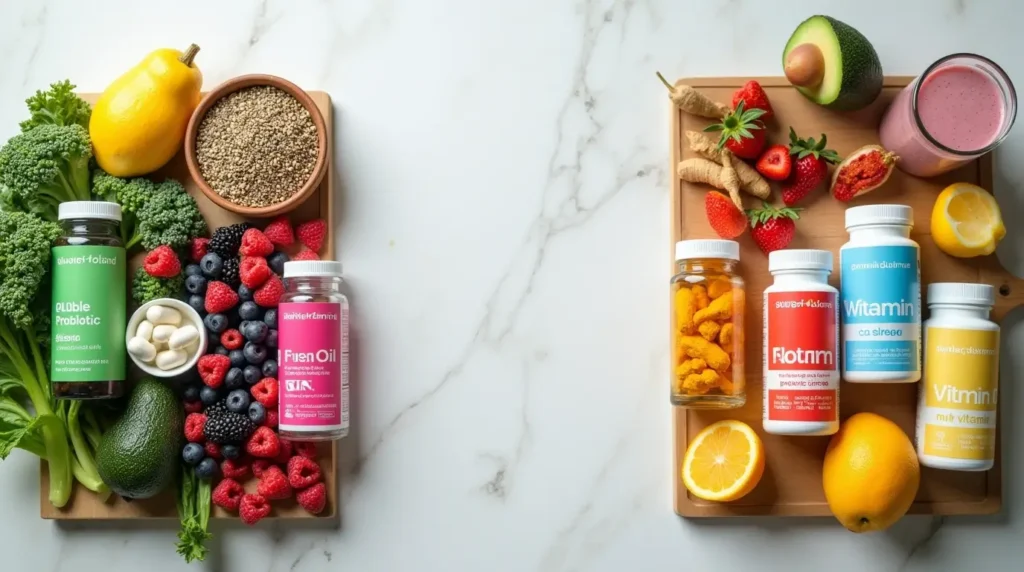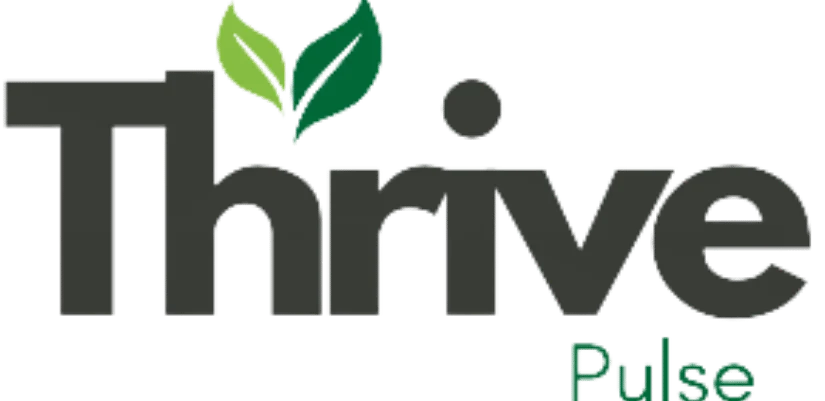Superfoods vs. Supplements: Which is Better for Your Health?
Table of Contents

Looking to boost energy and immunity naturally? You’re not alone. With endless options on the market—from vitamin pills to antioxidant-packed superfoods—it’s easy to feel overwhelmed. But what if the key to optimal health isn’t in a bottle but on your plate?
Discover powerful superfoods for health that nourish your body from the inside out while comparing their benefits to traditional supplements.
In this deep dive, we’ll explore science-backed insights, debunk myths, and help you decide: Are superfoods or supplements the smarter choice for your wellness goals?
Why Superfoods and Supplements Matter for Modern Health
Contemporary living requires optimal performance; however, hectic schedules frequently result in nutritional deficiencies. While supplements promise a quick fix, whole-food superfoods like chia seeds, blueberries, and kale deliver vitamins, minerals, and phytonutrients in their most bioavailable form. Research shows that food-first approaches improve long-term health outcomes by 34% compared to synthetic supplements (Journal of the American College of Nutrition, 2022).
Key Considerations:
- Bioavailability: Nutrients from food are absorbed more efficiently.
- Synergy: Superfoods contain complementary compounds that enhance nutrient uptake.
- Sustainability: Whole foods reduce reliance on processed products.
Top Superfoods to Naturally Boost Energy and Immunity
Rather than resorting to supplements, consider incorporating these nutrient-rich superfoods:
- Chia Seeds – Packed with omega-3s, fiber, and protein for sustained energy.
- Turmeric – Curcumin fights inflammation and supports immunity.
- Blueberries – Antioxidant-rich for cellular repair.
- Spinach – Iron and folate for energy and detoxification.
- Almonds – Vitamin E and healthy fats for brain health.
Pro Tip: Blend a superfood smoothie with spinach, chia, and almond butter for a quick, immune-boosting breakfast.
Supplements: When Are They Necessary?
While superfoods excel, supplements fill critical gaps:
- Vitamin D: For those with limited sun exposure.
- B12: Essential for vegans/vegetarians.
- Iron: For individuals with diagnosed deficiencies.
Data Insight: 42% of Americans use supplements, yet only 12% actually need them (NIH, 2023). Always consult a doctor before starting a regimen.
How to Incorporate Superfoods Daily
- Breakfast: Oatmeal topped with berries and flaxseeds.
- Lunch: Quinoa salad with kale and avocado.
- Snacks: Dark chocolate (70% cocoa) or walnuts.
- Dinner: Salmon with roasted sweet potatoes and turmeric seasoning.
The Verdict: Food First, Supplements Second
Superfoods offer holistic nourishment with fewer risks of overconsumption. Reserve supplements for targeted needs—not as a dietary crutch.
Ready to transform your health? Try these superfoods today and feel the difference!
FAQs
Q: Can’t I just take a multivitamin instead?
A: The fiber and phytonutrients available in whole foods are not supplied by multivitamins.
Q: Are superfoods expensive?
A: Not always! Frozen berries, lentils, and oats are both economical and packed with nutrients.
Q: How soon will I notice benefits?
A: Energy improvements can appear in days; long-term benefits like immunity take weeks.
Loved this guide? Share your favorite superfood combos below or explore our Gut-Health Boosting Recipes next!
Optimized for semantic search with related terms: natural energy boosters, best immune-support foods, whole-food nutrition, synthetic vs. natural vitamins.

